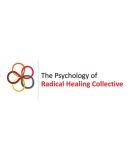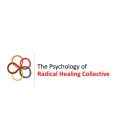Stress
Radical Self-Care in the Face of Mounting Racial Stress
Cultivating hope through acts of affirmation.
Posted November 15, 2019 Reviewed by Devon Frye

By Grace A. Chen, Helen A. Neville, Jioni A. Lewis, Hector Y. Adames, Nayeli Y. Chavez-Dueñas, Della V. Mosley, & Bryana H. French, The Psychology of Radical Healing Collective
Earlier this month, the American Psychological Association released its annual Stress in America Report. Not surprisingly, there has been an increase in reports of discrimination as a source of stress over the past year, with the majority of People of Color and Indigenous People (POCI) (63 percent) indicating that discrimination interfered with them having a full and productive life.
When we as POCI experience day-to-day discrimination, such as being treated unfairly, or when we witness the significant discrimination of others who look like us, we can start feeling helpless and hopeless. The incidents of racial trauma are continuous and chronic, as we observe increased police killings of unarmed Black people, hate crimes against Muslims (or those who are assumed to be), assaults and killings of transgender POCI, violation of Indigenous lands, and the dehumanization of immigrant communities. In moments of increased distress, it is important for us to remind ourselves that racial trauma is not all of who we are and that we are not defined by the racialized experiences we have and witness.
In fact, Communities of Color also have many experiences that can be celebrated and cultivated; these include our cultures, traditions, history, and community bonds. These strengths not only help us cope with and heal from racial trauma, but they also give us meaning and life outside of our pain.
Cultivating Hope
The Psychology of Radical Healing Collective recently introduced a psychological framework of radical healing from racial trauma—while acknowledging the systemic nature of oppression, POCI can engage in radical healing through self-knowledge, critical consciousness, collectivism, strength, resistance, and hope. The key feature of radical healing is being able to exist in both spaces of resisting oppression while moving toward freedom and wellness. In order to envision racial justice, we must cultivate hope alongside fighting against oppression. One way of cultivating hope is through positive acts of self-care.

Advocating for social justice is rewarding, as such actions can help address inequity in our society; however, doing social justice work also can be emotionally and physically draining. When we fight for justice, we find ourselves in spaces that negate our realities, and we frequently face hostility from others as we challenge the status quo.
The healing process necessitates us to take care of ourselves, to rejuvenate ourselves, and to cultivate hope within ourselves. Consider Karla, a counselor for college Students of Color and undocumented students—during her work week, she gives a lot of herself to supporting students. For self-care, she swims regularly and participates in open-water swim events annually.
Several years ago, she combined self-care with her work by using her participation in swim events as a fundraiser for undocumented college students and recruited friends and colleagues to join her. Now they have a community of swimmers who are taking care of themselves through exercise and also linking their self-care to a cause (supporting undocumented students) they deeply care about.
As Audre Lorde noted, “Caring for myself is not self-indulgence. It is self-preservation, and that is an act of political warfare.” Thus, we encourage POCI to tap into their strengths and practice radical self-care through acts of affirmation.
Five Ways to Practice Radical Self-Care
1. Make space for your own healing.
Research has shown that sharing your story in a meaningful way can empower you to envision future possibilities. Talk with trusted loved ones, or share your story through creative outlets, like blogs, spoken word, music, art, etc.
Professional healers can be beneficial too—seek psychotherapy with a Therapist of Color who understands oppression and sees your full humanity. Alternatively, find a healer who engages in Indigenous practices, energy psychology, or other traditional healing practices. For example, if you tend to carry stress in your body, going to a Reiki healer may be beneficial as the treatment involves a holistic approach to well-being.

2. Cultivate joy.
Fighting oppression and advocating for social justice shouldn’t be mutually exclusive from living joyfully. Make time and space to enjoy life and celebrate your culture, traditions, history, and community.
Time for joy should be scheduled and protected, as the anticipation of this pending self-care can help you make it through the day-to-day challenges. For example, schedule time to attend the Black Joy Parade in Oakland, which was created as a positive counter-space to encourage freedom, creativity, and openness in celebration of Black experiences.
3. Find a place where you feel a sense of belonging.
The benefits of having a social and emotional connection and a sense of belonging are supported by research—social engagement and social support lead to better mental and physical health, as well as individual and community well-being. Develop a sense of community where you feel supported, seen, and like you can be yourself more fully. For example, you can start a book club for POCI individuals in your community or start volunteering at a community-based organization that serves the needs of POCI communities to cultivate a sense of belonging and community.
4. Engage in small acts of empowerment.
Taking even small steps to support POCI can be empowering for both you and the recipient of your actions. For example, support businesses of POCI through your choices in purchases and/or when deciding where to volunteer your time. Another example is to amplify the voices and perspectives of POCI through your everyday social media interactions, such as on Twitter, Instagram, or through citing the research of POCI scholars if you are a student or scholar.

5. Get involved in local community-based activism and advocacy.
Advocating at the community level can also be empowering for yourself and your community. For example, if you have children, participate in diversity and inclusion efforts in your child’s school by sharing resources for educating parents and children about privilege, oppression, and social justice. Support POCI running for elected offices or allies who are advocating for issues impacting POCI communities.
Through these acts of affirmation or any others you may practice, you are engaging in radical self-care such that you can continue to cultivate hope and envision wellness and freedom from systemic oppression. Rejuvenating yourself through radical self-care can include a range of practices, including healing yourself, cultivating joy in your life, connecting with your community, practicing small acts of empowerment, and getting involved in local activism and advocacy. The intention and awareness of taking care of yourself can be empowering in and of itself.
References
American Psychological Association (2019). Stress in America: Stress and Current Events. Stress in AmericaTM Survey.
French, B. H., Lewis, J. A., Mosley, D., Adames, H. Y., Chavez-Dueñas, N. Y., Chen, G. A. & Neville, H. A. (2019). Toward a psychological framework of radical healing in communities of color. The Counseling Psychologist. Advance online publication. https://doi.org/10.1177/0011000019843506
Lu, J.H. & Knight Steele, C. (2019) ‘Joy is resistance’: Cross-platform resilience and (re)invention of Black oral culture online. Information, Communication & Society, 22, 823-837, DOI: 10.1080/1369118X.2019.1575449
Ortega-Williams, A., Wernick, L. J., DeBower, J., & Brathwaite, B. (2018). Finding relief in action: The intersection of youth-Led community organizing and mental health in Brooklyn, New York City. Youth & Society. https://doi.org/10.1177/0044118X18758542




